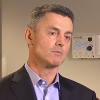Loading the player...
What Medications are Right for Stroke Patients Neurologist, discusses What Medications are Right for Stroke Patients.Neurologist, discusses What Medications are Right for Stroke Patients.
Featuring Dr. Dean Johnston, MD, MHSc, FRCPC, Neurologist
What Medications are Right for Stroke Patients
Duration: 2 minutes, 15 seconds
If your doctor has identified treatable risk factors for stroke, they may offer you a number of medications.
Anti-hypertensive medications for elevated blood pressure can be used. Cholesterol-lowering medications to reduce the risk associated with elevated cholesterol.
And medications to reduce blood sugar are all available and may be chosen by your family doctor, depending on your particular risk factor profile. If a patient recognizes stroke symptoms and presents to the hospital emergency department urgently, within four-and-a-half hours, they may be eligible for a clot busting drug known as TPA.
This can only be given in an emergency department, and after a patient has had a CT scan. It can only be given within the first four-and-a-half hours of the onset of a stroke. If a patient is eligible for treatment and is treated, they’ll be admitted to the hospital, depending on the severity of their stroke.
They may then be seen by a number of other specialists, including neurologists, cardiologists, rehabilitation specialists, physiotherapists, and occupational therapists. Much of this is determined by the type and severity of stroke that they have experienced.
Part of the process of evaluating a patient after their stroke in hospital is to identify risk factors and conditions that can be treated to prevent recurrent stroke. One of the most important risk factors for stroke is atrial fibrillation.
This condition often goes unrecognized by patients until they present to the emergency department with a devastating stroke. Atrial fibrillation is a treatable condition, and we can virtually prevent stroke from atrial fibrillation by administering medications that thin the blood.
There are a number of these medications, and if you have concerns that you may have atrial fibrillation, you can discuss these with your physician. The medications that are typically used to prevent stroke and atrial fibrillation are called anticoagulants, and there are a number of different types of anticoagulants that are available.
Not all individuals with atrial fibrillation are eligible for anticoagulation, and this is an area that should be discussed with your family physician.
Presenter: Dr. Dean Johnston, Neurologist, Vancouver, BC
Local Practitioners: Neurologist
Premier Practitioners
This content is for informational purposes only, and is not intended to be a substitute for professional medical advice, diagnosis or treatment. Always seek the advice of your physician or other qualified healthcare professional with any questions you may have regarding a medical condition.



